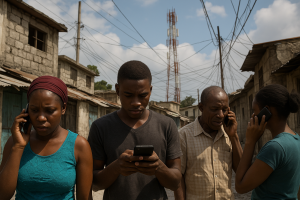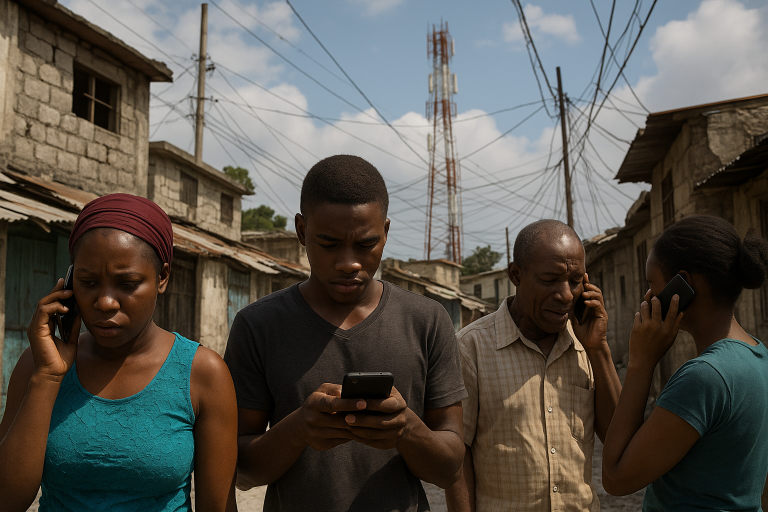Introduction: A Look at Haiti’s Economic Vibrancy
When you think of Haiti, what comes to mind? You may think of it as a country with a history of political turmoil and natural disasters. Internationally, the media often paints Haiti with a single brushstroke, focusing on its struggles without catching a glimpse of the rich tapestry that is its economy.
What you may not know is that Haiti houses a bustling economic melting pot, simmering with potential and vibrant activity. There are sectors flourishing quietly, innovators breaking barriers, and traditions finding new expressions. It’s that very economic mosaic we’re about to explore—a journey through the economic landscape of Haiti that rarely makes the headlines.
Haiti’s Historical Economic Foundation
Haiti’s story is deep and complex, woven through with threads of triumph and adversity. Economically, it’s been a journey from a colonial powerhouse, built unfortunately on the backs of slaves, to a nation striving for autonomy and diversity post-independence. For years, agriculture, especially sugarcane and coffee, supported the country’s economy.
But times have changed.
The echoes of colonialism and the struggle for independence left lasting effects on Haiti’s economy, but they also set the stage for adaptation and transformation. Today, Haiti isn’t just about agriculture—it’s about evolution. Let’s dive into some of the sectors that are rewriting the Haitian economic story.
The Hidden Gems of Haiti’s Economy
Agriculture: Beyond Sugarcane and Coffee
Did you know that Haitian farms are more than just sugarcane fields? A quiet revolution is happening in the world of organic farming and specialized export crops. Local initiatives are creating economic ripples, and introducing high-value crops like cacao and moringa to international markets. It’s an agricultural renaissance that’s putting Haiti back on the global map, all the while empowering local farmers.
Textile Industry: The Unsung Hero
Textiles might not be the first thing you associate with Haiti, but think again. The country is an important player in the global textile market. Under the radar, Haitian textile factories are producing garments that you might find in your closet without even realizing their origin. These factories are not just production hubs; they’re lifelines for communities, providing employment and driving economic growth.
Tourism: Rediscovering Haiti’s Natural Beauty and Cultural Heritage
Haiti’s stunning natural vistas and rich cultural heritage are its untapped veins of gold. Pockets of growth in tourism show the country’s potential to blossom into an exquisite destination for those seeking the road less traveled. From the citadel in Cap-Haïtien to the untouched beaches of Île-à-Vache, tourism ventures are carving out success stories, sharing the real Haiti with the world and inviting economic stability in the process.
Innovative Economic Movements in Haiti
Technology and Start-up Scene
In the shadows of the historical economy, a new breed of Haitian entrepreneurs is rising. The tech start-up scene is buzzing with innovation, from mobile money to educational apps. What Haiti may lack in traditional infrastructure, it makes up for in raw creativity and resourcefulness. Profiles of tenacious tech companies and disruptors showcase the nation’s forward-thinking mindset.
Renewable Energy Initiatives
Haiti is also harnessing the sun and wind for a brighter economic future. With resources aplenty and international partnerships fostering growth, renewable energy initiatives are sparking not just power but hope. These projects are lighting up the path towards a sustainable, independent energy grid.
Each of these sectors tells a part of Haiti’s true economic story. It’s one of diversity, strength, and profound capacity for innovation. Stick around, and we’ll keep unveiling this rich narrative, offering glimpses into an economy full of surprises and boundless potential.
Challenges and Opportunities
Haiti’s economy doesn’t exist in a vacuum; it is regularly tested by torrents of adversity. The island nation is frequently finding its footing again after earthquakes, hurricanes, and other natural disasters. Political instability and lacking infrastructure often stifle its growth and weigh heavily on the nation’s prospects.
Yet, there’s a silver lining: with every challenge comes a door to opportunity. These very obstacles are catalysts for innovation, pressing the economy to become more resilient and adaptive. In the crucible of these trials, Haitian entrepreneurs and communities find new ways to thrive, craft unconventional solutions, and embrace a spirit of indomitable resourcefulness.
The Future of Haiti’s Economy
Looking ahead, the future of Haiti’s economy is cautiously optimistic. Experts acknowledge the roadblocks but also note an underlying momentum. Projections suggest that if current growth and diversification trends continue, Haiti’s economic landscape could undergo significant positive changes.
The interplay between international aid and local entrepreneurship is pivotal. While foreign assistance can offer a lifeline, it is the local initiative, the spirit of Haitian innovation, that could truly sculpt the nation’s future. Harnessing this local dynamism and creativity is key to enduring economic evolution.
A New Narrative for Haiti
In recounting the vibrant sectors underpinning Haiti’s economy, it becomes clear that there’s a stark contrast between perception and reality. Agriculture, textiles, tourism, tech, and renewables are just a few threads in the fabric of Haiti’s economic story. It’s a narrative brimming with untold potential, ingenuity, and vigor.
It’s time to change the narrative around Haiti’s economy, to shed light on the progress and promise that flourish alongside the more familiar tales of hardship. There’s a role for the international community here: to recognize Haiti’s economic potential and to invest in it, thereby contributing to a brighter, self-sustained economic future for the country.
Additional Notes
To truly bring Haiti’s economic tapestry to life, it’s essential to weave in the personal stories of those who are part of it. Interviews with Haitian business owners, farmers tapping into organic markets, tech visionaries, and artisans will add depth and humanity to our understanding.
Data and statistics will underpin these narratives, providing a factual backbone to claims of growth and opportunity across the sectors. Such information would paint a clear picture of where Haiti stands and where it could potentially reach.
Lastly, let’s remember that a picture is worth a thousand words. Engaging visuals like infographics, photographs, and videos can powerfully convey the beauty and richness of Haiti, contextualizing its economic story and breathing life into the numbers and analysis. With each frame and figure, the dynamic spirit of Haiti’s economy can be celebrated, understood, and supported.












Add a comment